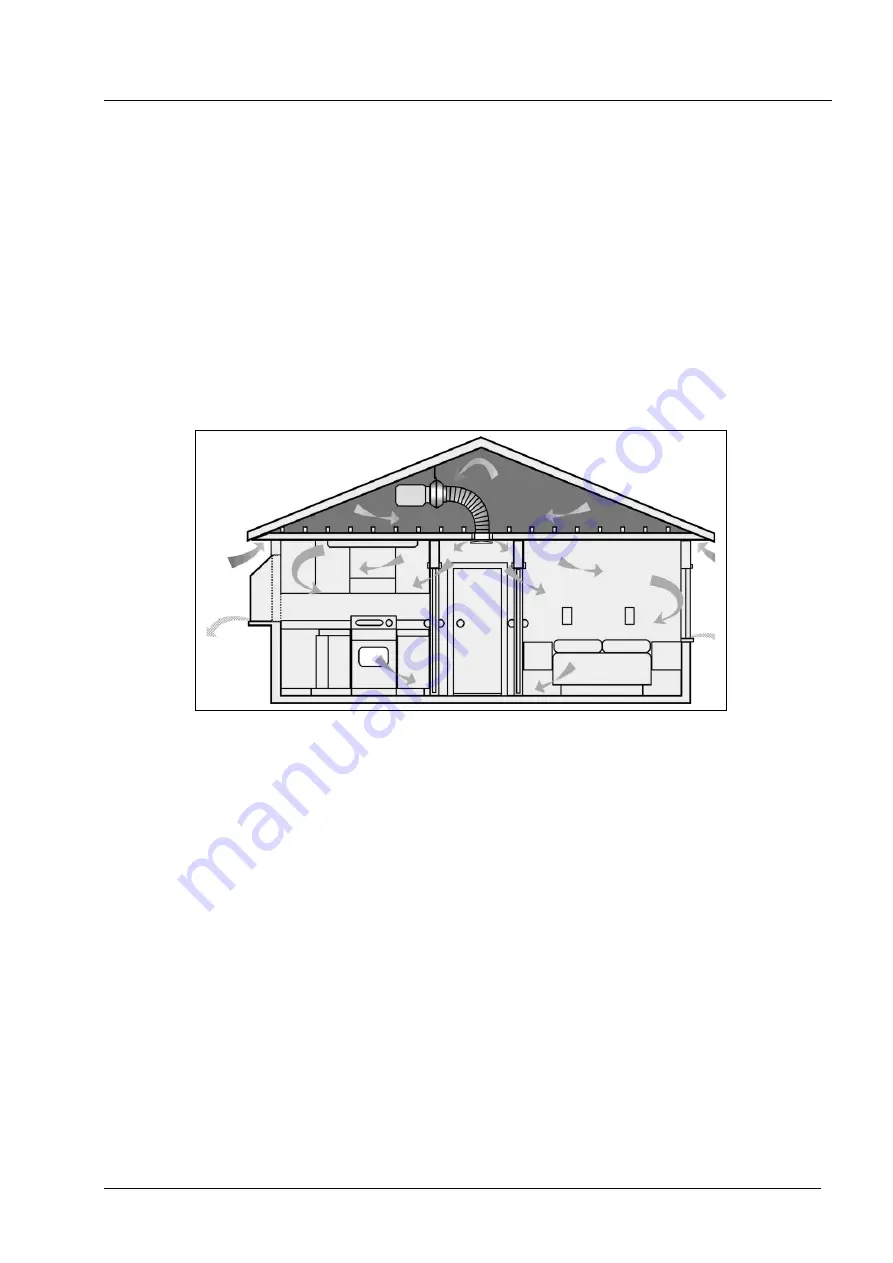
Operating Manual
“Warm N Dry”
www.hvsolutions.com.au
4 of 12
Copyright 2010
Operating Principles
The purpose of the HVS is to ventilate your home with introduced air which is fresher and drier
than the air inside your home in a controlled manner. Air from the roof space replaces stale
humid air which causes condensation, which can lead to mould and damp problems, or at least to
reduce them to an acceptable level.
The diagram (below) shows how the system works. Air is transferred from the roof space
because it is always warmer than the outside air. During the night, the roof space cools down
(but usually not as cold as outside) and air flow into the home is reduced, but
NOT
stopped
completely, to control condensation.
A small continuous supply of fresh air into the home is required to banish condensation during
winter. The ventilation air supply positively pressurises the home causing stale air to be gently
forced out through cracks under doors, floor boards etc.
This method of positive pressure ventilation (PPV) is the most cost effective way to reduce
moisture build up in the home.
Outside doors and windows could be left open, which will allow in the necessary fresh air,
however there are a number of draw backs with this approach such as security, inability to control
the flow rate (too much or not enough) and the increased heating cost that would be required to
over come these cold draughts.
Heat Pumps (reverse cycle air-conditioners) do not de-humidify in heating mode and are only
effective in summer cooling mode. Room de-humidifier units are very expensive to run and like
moisture crystals have little effect on moisture. None of them provide the necessary fresh air
ventilation that your home requires.






























